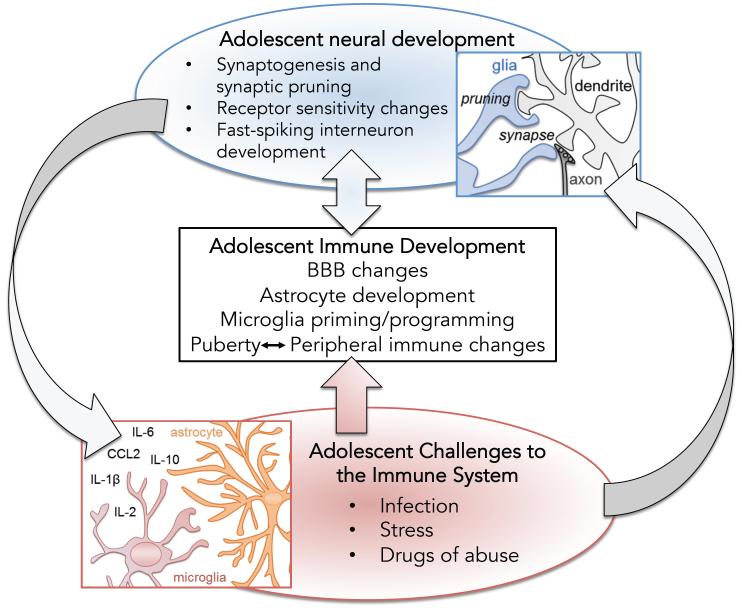Figure 4. A schematic representation of potential interactions between adolescent neural development, immune development, and immune activation at this time.
Adolescence is a complex period of development that includes important neurodevelopmental processes such as synapse formation (synaptogenesis) and the pruning of other exuberant synapses. Similarly, neurotransmitter receptor sensitivity and expression change throughout adolescent brain development, while important inhibitory interneurons finalize their rhythm and functionality. Simultaneously and likely in response to changes mentioned above, the immune system is undergoing its own maturational changes including alterations in blood brain barrier (BBB) permeability, astrocyte and microglial development, and peripheral immune changes that are likely dependent upon their interaction with pubertal sex hormones at this time. Activation of the immune system and immune cells in the brain (microglia and astrocytes) via either infection, stress, or drugs of abuse can result in the release of immune molecules (cytokines and chemokines) that in turn impact both neural and immune function during this unique period of adolescent immune function and neuro-behavioral vulnerability.

